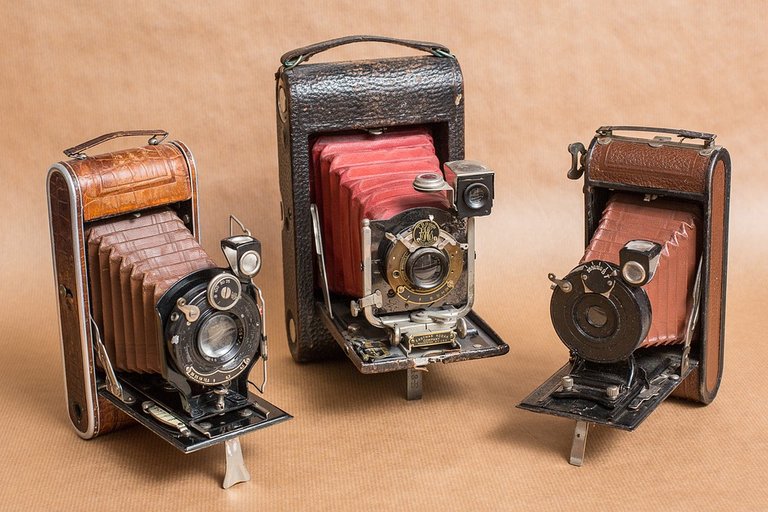
Photography is cool! At least that's what you heard. So you decided to try it out yourself, but the moment you entered a photography shop you got overwhelmed by the sheer amount of different cameras and when the clerk asked you what kind of camera you are searching for and which kind of photography you do, you mumbled a few words like "you know... the normal kind..." and abruptly made your way out of the shop. <('o'<)
Don't worry, we have all been there.... maybe :D.
I think it's best if I lay out step by step what you should do before buying a camera and let that serve you as guide into the world of photography.
Let's get started!
First things first
Look around you!
There might already be a camera somewhere. I found my camera on the backside of my phone years ago. I started out taking snapshots of anything. Over time I started to play with the focus and composition. I used to take pictures of random snails on the road, the sky, buildings etc. In essence it's just like using a pro camera switched to auto with a fixed prime lens. (meaning the camera does all the thinking and you can't zoom in or out)
So get out there if that's already an option for you! See if you like it.
If you don't have one and smartphones are something you despise I'd recommend buying an used ~30€ compact camera. The goal here is to simply get you acquainted with what it feels like to take and make pictures.
Learn, learn, learn...
Once you have taken a bunch of pictures and you enjoy the process start learning as much as you can. Read books and watch videos about photography. Try to imitate the best. Also take a look at post-processing.
While JPG files don't offer much flexibility, the processes in post production don't change if you start using RAW formats later on. (RAW formats are what pro cameras shoot)
On youtube I'd recommend watching these channels:
...and many more. Find what you like!
I use these channels for motivation and learning myself so give them a try シ
Making the choice
Once you went through the process there's usually 3 options:
There's no shame in staying true to your phone camera. Today's phones are getting increasingly better cameras and even shoot RAW formats. If you don't want to bother with the hassle of big cameras, lots of gear and editing, phone cameras are perfectly fine and you can use apps like Instagram to enhance your shots on the go.
If you feel your phone just doesn't give you enough reach sometimes and falls short here and there, but you are sure you don't want to carry around a big camera with many lenses, a compact camera might be for you.
In this case you are like me, yay! ヘ( ^o^)ノ\(^_^ )
In this case you'll get yourself a DSLR!
Choosing a Compact Camera
Just like pro cameras, compact cameras offer full control over you image setting, but you can always shoot in full auto if manual intimidates you. Compact cameras are usually smaller and lighter than SLR cameras. They use very different sensors sizes from camera to camera and don't have interchangeable lenses.
Here's a list of the best of 2017: LINK
When choosing a compact camera try to choose according to what you felt was lacking in a phone. If you want to reach far, get a camera with a long lens ~250mm or longer. Or a higher continuous shooting rate ~up to 24fps. Something with 4k video. Pick something you know you'll be happy with.
Keep in mind that smaller sensors produce a narrower image. Read more about it further down below.
If your particular choice is too expensive try looking at similar competitors, earlier models or try out ebay. You can find amazing offers if you are patient.
Things to know about Professional cameras
DSLR
DSLR (digital single-lens reflex cameras) are what most people think of when talking about professional cameras. These are big cameras with a pentaprism inside which allows for an optical viewfinder.(you can see and frame you shots by looking in the viewfinder even if the camera is shut down.)
Mirrorless
Mirrorless cameras are basically the same as DSLR cameras, but they don't have an optical viewfinder. The viewfinder is replaced with a digital one. (can't frame shots when the camera is shut down) This allows the camera to be a lot smaller and lighter.
Sensor sizes
There are a lot of sensor sizes out there.
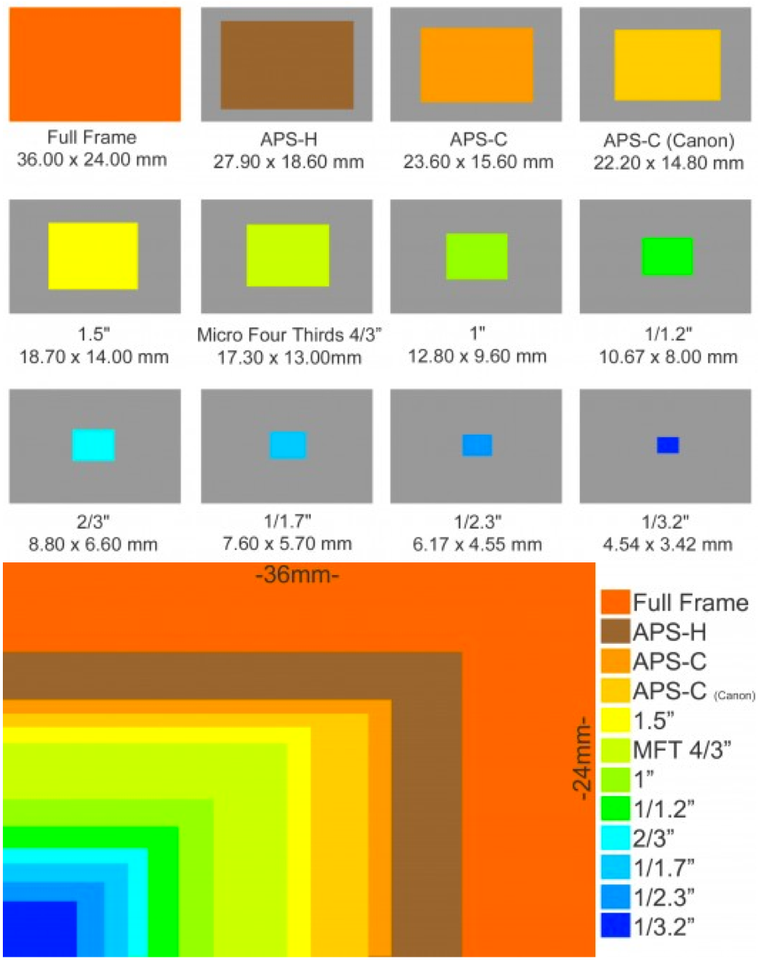
Full frame sensors are the equivalent to 35mm film. To keep things from getting confusing all lenses are marked with their full frame equivalent focal length. (read more about focal lengths here: Link)
If you sensor is smaller than a full frame sensor the focal length will increase by a crop factor, because only a portion of the light will fall on the sensor.
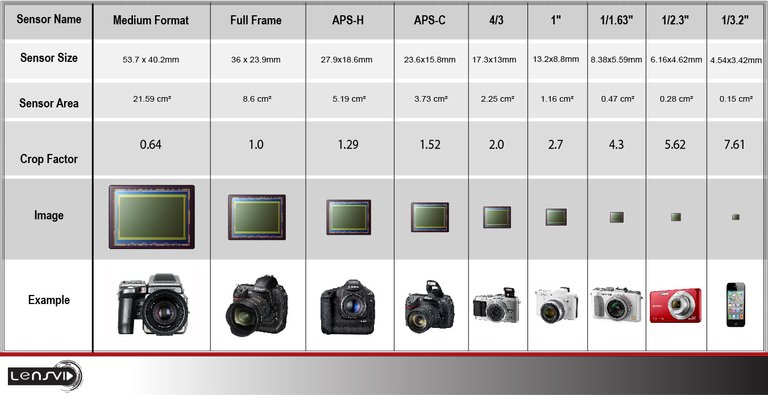
If you are looking to get the widest pictures possible you should choose a camera with a full frame sensor.
Choosing a pro camera
There are a few things to look at and consider when choosing a pro camera.
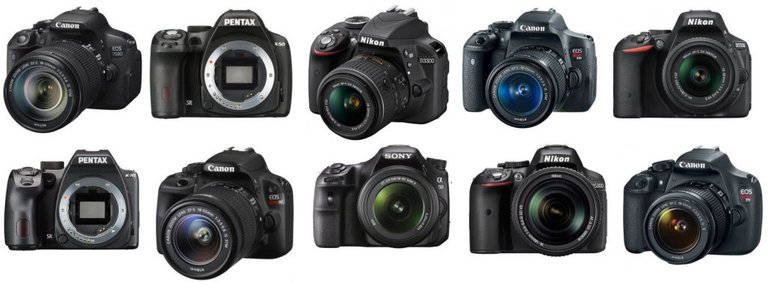
Megapixels
Usually the bigger the sensor is, the more pixels it has. Full frames of today range from 36 to 50 Megapixels(MP) while APS-C are around 24MP. Micro 4/3 sensors are around 20MP. Higher MP produce higher resolution images and are therefore sharper and far more forgiving to cropping in post.
But for most intents and purposes an 8MP sensor is already enough to create amazing pictures. Especially if those pictures get resized and put on the web where they most likely are display at fullHD max which is around 2MP.
The Sensor
Another thing to consider is sensor quality. Good sensors show less noise at higher ISO settings than weaker ones. You can search for tests and compare the noise yourself or read reviews of any camera. You'll find that some cameras use the same sensor although they are a year or two apart. There's no need to pay more for a camera that was basically available a year ago under another name.
Newer sensors are usually better. Manufacturers like to brag about ISO speeds of up to 512 000, but at these setting they are unusable. If anything it should simply indicate that on lower setting the noise has become less visible. Once you use a camera yourself you'll notice that from certain ISO speeds the image degrades considerably more.
Bigger sensors have less noise.
Camera features
It's also crucial to get a good understanding about the features of a camera. Can you add a microphone to it? Can you use an external flash? Can you use HSS(high speed sync flash)? What kind of image stabilization does it have? What about battery life? What shooting modes does it support? Can it do timelapses? HDR? Weather sealed? Can you connect it to your computer? Does it have WiFi? etc...
When I did my research I used this website http://snapsort.com/compare
It gives you a quick overview of the main differences between cameras.
Other than that it's all about reading reviews and figuring out what is important to you. Usually the newer a camera is the more features it will pack.
Lenses
Another thing you should consider are lenses. A kit lens rarely covers all the focal lengths you'd like to shoot at. It means you will want to get another lens. As a beginner it would be better to get a lens that covers everything. Like a 17-270 zoom lens. Search for deals that give you the best kit lens.
There's also the argument that Canon and Nikon lenses dominate the second hand market, meaning if you would like to spare some money on your next lens going with Canon or Nikon will give you more opportunities to do so. As a Pentax user I can confirm this is the case :D but It's not as bleak as some might make it out to be. There are also a ton of old manual lenses available that aren't bad at all.
Knowing your style
When it comes to sports photography you want a big zoom lens and a camera with a big burst speed so you wont miss you moment. A camera that can take 10fps for example.
In landscape photography that doesn't matter and you'd rather want a wide angle lens instead.
If you like to take your camera on trekking trips you'd want a weather sealed camera while shooting in a studio that won't matter.
As a beginner you should pick a camera that can do a little of everything. So maybe a weather sealed camera that can shoot around 7fps and a zoom lens with a wide range. You will still get most of your sport shots, the camera will be protected, but the images might not be the best quality. Later on you can get a better lens if you know what you need.
The same goes to gear.
If you know you are gonna to portraits all you need to focus on really is the lighting. Figure out what kind of accessories you'll need. Things like speedlights, umbrellas, diffusers, color gels, a decent tripod etc. The camera doesn't really matter that much in the beginning. Any new entry level camera will do. If you get the handle on things and start making money you might want to upgrade to something better later.
Why did I choose the Pentax K-30?
After taking snapshots for many years with my phone and learning to photoshop I decided to get myself a real camera.
I spent countless evenings reading about different cameras, from the really old to new Hasselblad cameras. I was getting really good at figuring out which camera was best at which price point, but still I couldn't get myself to buy one, since all the cameras were too expensive. I would have loved to get a D7300 or a D750, but is it worth dropping up to 1500$ on camera while you are a beginner? I thought not.
I set myself a max amount of money I'd be willing to spend on a camera (around 400$) and started researching again. I found out that I had the option of buying an entry-level camera from shop(Nikon D3200) or get a class higher, but used. Naturally I started looking at used cameras and ended up finding an barely used Pentax K-30 for around 40% less than the Nikon while being better at almost everything (ISO, megapixels, burst, bigger viewfinder, image stabilization, etc). What made it more intriguing for me was that the K-30 was very similar to the older K-5 and the newer K-50. They all used the same sensor and shared most of their features. Even now the K-50 costs twice as much in shops.
I couldn't be happier about my buy.
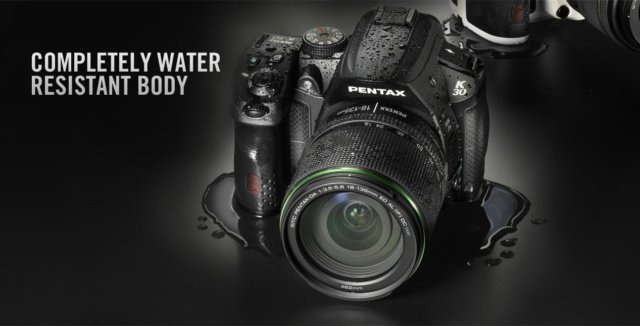
When you are considering buying an used camera, the main thing to check is the shutter count. The shutter is usually the first thing that fails on a camera. If it's well below 100 000 the camera is still good.
The Takeaway
The best camera right now is the one closest to you. Get out there and start shooting. Figure out whether photography is something you want to pursue.
Before buying a camera make sure you know what you need. A compact camera might be enough.
Read reviews and compare different cameras. Similarly priced cameras are not equal. Compare their features and specifications.
Set yourself a strict budget, otherwise you might find yourself wasting time reading reviews of cameras that are way too expensive.
Always check used cameras too, you'll never know what you might find.
I hope this post was of some help.
If you have questions let me know in the comments.

Great post!! Love your work and the educational posts! Followed!
One thing I think you should mention tho, when the sensor is the same size, lower pixel count means better low light performance because each pixel takes up a bigger portion of the sensor, therefore allows more light; high pixel count means it's very easy to get a blurry shot and more noise, but also much more details and great for cropping. Also, full frame camera pixel count can go as low as 12mp, and as high as 54mp. So, using the Sony A7 series as an example, if you want better low light performance, you should get the A7s which has 13mp, if you need to print in large sizes, go for the A7r which has 36mp. The A7 is the balance between the two, and is good for moving objects, and has 24mp.
Just my 2 cents, and thought people might wanna know this.
I'm a photographer as well, guess you could tell by the gibberish I just spilt lol. Would be great if you could check out my work and let me know what you think! It's always to get feedback and improve. :)
thanks for the info!
No probs! Just thought I'd add my 2 cents, so people know a bit more. :p
Im still amateur photographer, i must learn much from pro. Nice info. Sometimes camera phone bring more advantages when suddenly we can get great moment
yes it can!
Superb! Bravo. Upvoted and resteemed.
Thanks! @condra
Wow excellent post, jsut a shame I am terrible for seeing a shiney gadget, throwing caution to the wind and buying it because it looks cool, I'll keep all your good advice in mind when I get my next camera.
Good :D
Very nice guide @sulev. Upvoted, resteemed & DPS.
Thanks! @photo-trail
I will buy one of Sony's a7r2 or Olympus' e-m1 mark2. One is a full frame camera and the other is a micro Four Thirds sensor, plus 60 fps in Pro mode. What would you buy?
This is a tough one.
Depends what you want to use it for.
While the Sony is hands down better when it comes to image/video quality, it's not the most convenient to use.
The Olympus is packed with features and offers good performance. I think it's a better all around camera.
*think I'd get the olympus.
Great post @sulev! This are the kind of posts that should always be rewarded on Steemit! Thanks for the great resteem @photo-trail! Upvoted and followed!
Thanks! @kommienezuspadt
Great article!
thanks!
Very useful! About three years ago, I decided to upgrade from my old Nikon D60 (10MP) to a newer camera. I debated going with a mirrorless camera, but that would mean my Nikon lenses would be unusable. So, I settled on a D3300. While visiting Hong Kong, I hit the camera street and the first store I visited, a little hole-in-the-wall place run by an older gentleman, was selling the unit for a very decent price -- as good as online prices. After visiting a few other stores, I went back to the first place and got the camera. I've been a Nikon user since I got an FM in the 1980s, so I suppose it was brand loyalty.
Anyway, I am pleased with my purchase. I use the kit 18-55 mm VR lens, and a Tamron 70-300 mm VR zoom. Eventually, I'll get a lens that fills the gap.
Thanks!
I've only owned a camera for 10 months.
You're a quick learner, I think. Just go out and take photos like mad! I'm old enough to remember using film, and having to worry about running out of frames and spending money for processing. Now I can shoot hundreds of photos, make lots of mistakes, and do my own processing on the computer. Also, today's cameras are much smarter. Even so, I prefer shooting in manual mode sometimes if I want a particular effect or exposure.
I shoot 99% of the time in manual.
I've learned a lot over these months, but still mess up regularly.
Here's my flickr if you want to take a look: https://www.flickr.com/photos/144004577@N03/
When I take touristy kind of shots, or snapshots for remembrance's sake, I'll let the camera run in auto mode. When I want more artsy results, or want to capture the scene as my eyes see it, I'll use manual mode and bracket my shots just like in the old film days.
Nice to learn a bit though for me it's more like choosing my next phone because I the kind who shoots using phone camera
Best camera is the one next to you, love that! Also gonna look into a pentax, that looks great!
This post has been ranked within the top 80 most undervalued posts in the second half of Jun 07. We estimate that this post is undervalued by $22.17 as compared to a scenario in which every voter had an equal say.
See the full rankings and details in The Daily Tribune: Jun 07 - Part II. You can also read about some of our methodology, data analysis and technical details in our initial post.
If you are the author and would prefer not to receive these comments, simply reply "Stop" to this comment.